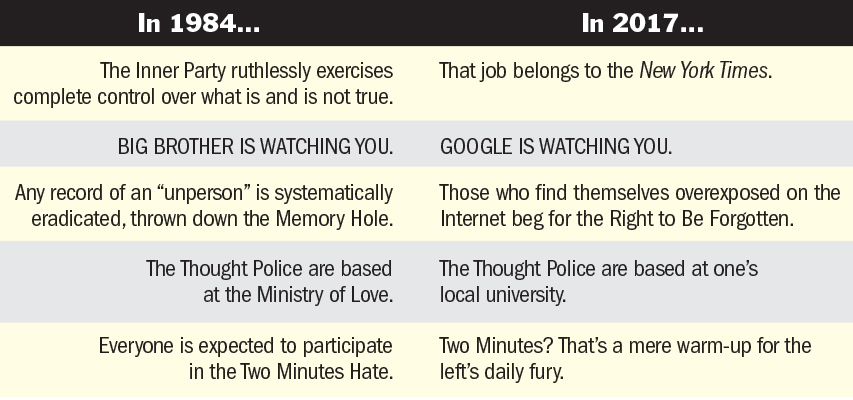April 4 rapidly approaches, the day that Winston Smith begins his illicit diary in Nineteen Eighty-Four. It is thus the day that indie theaters across the country have chosen for a protest-screening of the 1984 movie version of George Orwell’s dystopian tale. The movie houses are calling out, of course, the Trump administration: “Orwell’s portrait of a government that manufactures their own facts, demands total obedience, and demonizes foreign enemies, has never been timelier,” declared organizers of the showing. (In doing so, they bravely put themselves at risk—of rotator-cuff injuries, what with all the back-patting.)
The Scrapbook can’t help but wonder whether the protesters proclaiming the grim Orwellian moment have ever read the novel or seen the movie. For the differences between Oceania in 1984 and Washington in 2017 are pronounced. For example, in Nineteen Eighty-Four the state menaces, with peckish rats, any poor sod unwilling to agree with the government that two plus two is five; in Twenty Seventeen, the president tweets that two plus two is five and is promptly buried under an avalanche of outraged fact-checking. Some other differences:

And yet, for all these differences, there are parts of Nineteen Eighty-Four that are all too applicable to our current situation. For example, part of Winston Smith’s world are the ubiquitous telescreens that can never be turned off, nor their sound completely muted. In Twenty Seventeen, anyone who has sat through a half-hour of forced CNN consumption at an airport will know the oppressive feeling, and will instinctively reach for the synthetic Victory Gin.
